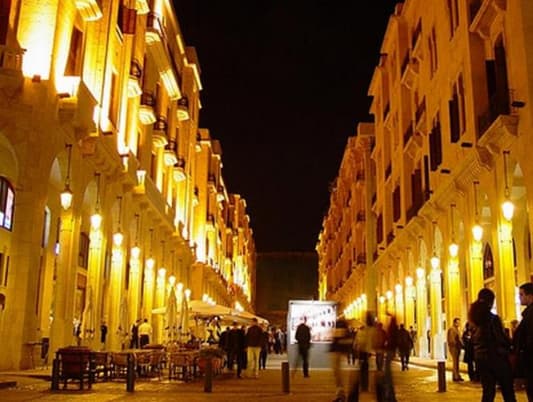A new Lebanese movement is hoping to take control of Beirut's council in municipal elections this weekend, aiming to tap into discontent with a failing government in an effort to weaken the grip of long-dominant sectarian parties.
Beirut Madinati, meaning 'Beirut is my city', hopes to attract voters angered by the decay of a capital once known as the Paris of the Middle East but overwhelmed in recent times by the stench of its garbage -- among other problems.
Including academics, artists, a famous film director, and the head of a fishing union, Beirut Madinati faces an uphill struggle against an alliance including long-established Sunni, Shi'ite and Christian groups.
Yet it is generating excitement among Lebanese who yearn to shake up a system of government that has slipped ever deeper into crisis since the onset of the Syrian conflict in 2011.
Some analysts believe they could win a seat or two on the council, even if total victory seems like a long shot.
"I am scared to open the windows of my house because I have a three-month-old daughter, scared of the air. I'm scared to walk alone at night because there is no lighting," acclaimed film director Nadine Labaki, a Beirut Madinati candidate, said during a campaign event.
"If you, like me are angry, forget the party, forget the sect, you are today Lebanese, a child of Beirut," she told the rally on Beirut's seafront corniche, one of few public spaces in a city whose lack of parkland is on the campaign agenda.
Lebanese municipal elections are to be held across the country over three weeks starting on Sunday, when the vote for the 24-seat Beirut council takes place.
It will be Lebanon's first election in six years, after parliamentary polls due to be held in 2013 were postponed twice. Lebanon's political crisis, exacerbated by the war in Syria, has also left the country without a head of state for two years.
Prime Minister Tammam Salam's government meanwhile struggles to take even basic decisions due to the deep differences between the rival parties represented in it.
Having failed to agree a dump site for Beirut's trash, the government last year left rubbish to pile up around the city, igniting large protests and raising public health concerns.
Those protests -- like Beirut Madinati -- were organized independently of the main parties which are formed along sectarian lines to reflect a system of government that divides power on a sectarian basis.
"What really galvanized everybody was the recent waste crisis and the summer uprisings," said Jad Chaaban, the Beirut Madinati coordinator who is also an associate professor of economics at the American University of Beirut.
FIRST OF ITS KIND
"This is the first time a non-partisan group has thrown in a full list of 24 members, which actually has a program and has gender equality," said Sami Atallah, executive director of the Lebanese Center for Policy Studies.
The list they are competing against, 'The Beirutis', is backed by the Future Movement of former prime minister Saad al-Hariri, the Shi'ite Amal Movement headed by Parliament Speaker Nabih Berri, and the Christian Free Patriotic Movement headed by Michel Aoun.
These groups typically sit at opposing ends of the political spectrum but have for years forged an alliance of convenience for the Beirut municipal polls.
Hariri, Lebanon's most influential Sunni politician, has thrown his full weight behind the campaign, having returned fully to Lebanese politics this year from several years abroad.
Jamal Itani, who heads 'The Beirutis' list, said its priorities were to solve the waste crisis and traffic problems, and to address the dearth of green space in a city still rebuilding after the 1975-90 civil war.
In a nod to Beirut Madinati, Itani said: "We think civil society has a big role in the success of any plan and any municipal council."
Beirut Madinati sells itself as having the professional and technical know-how to solve Beirut's problems -- free from the corruption and self-interest which many blame for a decline in Beirut's quality of life.
It may not be enough, however.
"Elections in Lebanon are in the first place about electoral machinery. The parties, not civil society, are the ones with the electoral machinery to gather people, to secure transportation, to secure finances," said Nabil Boumonsef, a political commentator with an-Nahar newspaper.
Young voters like Jad Essayli, 22, who said he would "definitely not" vote if Beirut Madinati didn't exist, could be the list's best hope.
"Our generation doesn't vote because we don't have any belief in the political system ... There are some who will just follow what their parents tell them. I think that those times have changed," Essayli said at a campaign rally.






TWEET YOUR COMMENT